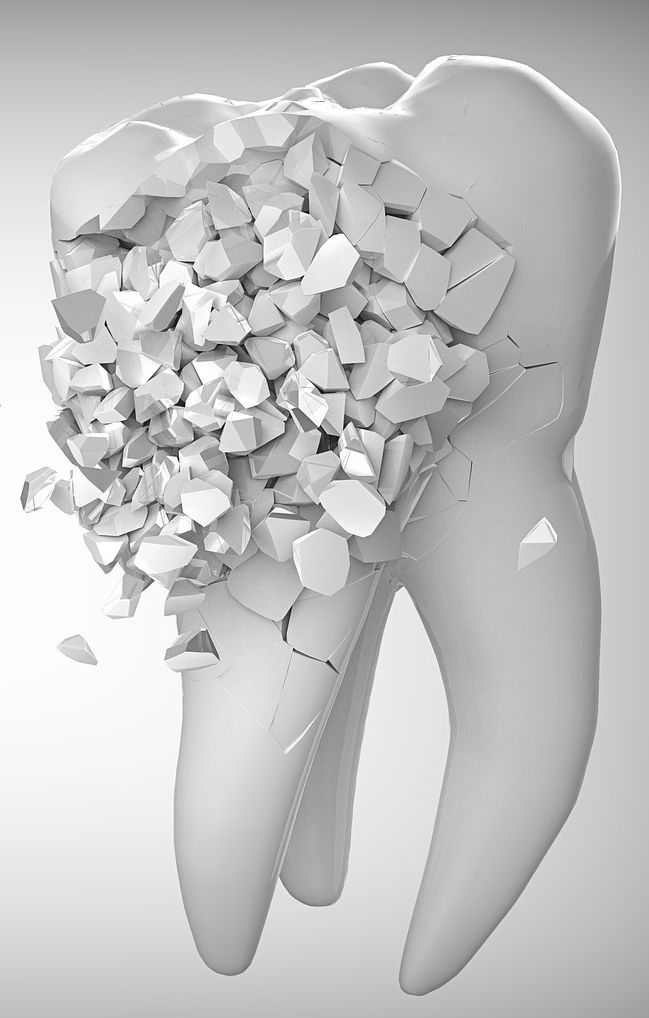An experimental drug for Alzheimer regenerates teeth affected by cavities or accidents

If so far caries and dental work have irreversibly affected the structure of teeth, this is about to change. Researchers at King's College London have released a study that supports the discovery of a drug that helps restore the bone tissue of the tooth after it has been affected by caries or dental fractures. British researchers have found that an experimental drug for Alzheimer's, called Tideglusib, has as a secondary effect the restoration of the dentin, the bone part of the tooth, made up of calcified tissue (basically the part under the enamel). This extremely simple method can be used in a variety of dental procedures. The drug will appear on the market in a relatively short time, says study author Paul Sharp. Tideglusib, used in clinical trials as a drug for neurological disorders, has the effect of stimulating neuronal cells in the growth process, but as it has been found, it also stimulates the teeth to produce more stem cells that regenerate dentin in areas exposed by problems .
Normally, an extremely thin layer of dentin will grow over a lesion, or far enough to save a severely damaged tooth. When Tideglusib is applied to the affected part of the tooth, it blocks the enzyme that prevents the dentin from growing and thus the whole area is regenerated completely. Photo: pixabay. .
Source : csid.ro
Views : 3046
Popular Article
- (photo) Nude becomes art.
Posted: 2018-03-17, 9590 views.
- The harmful effects of air conditioning on the skin
Posted: 2017-06-08, 8271 views.
- 3 causes of dyed hair discoloration
Posted: 2017-06-15, 8145 views.
- Why early puberty occurs in girls: symptoms, favors, diagnosis and treatment
Posted: 2017-10-24, 8000 views.
- Good or bad skin treatments in the hot season
Posted: 2017-06-07, 7739 views.
Recommendations
- (photo) Nude becomes art.
Posted: 2018-03-17, 9590 views.
- The harmful effects of air conditioning on the skin
Posted: 2017-06-08, 8271 views.
- 3 causes of dyed hair discoloration
Posted: 2017-06-15, 8145 views.
- Good or bad skin treatments in the hot season
Posted: 2017-06-07, 7739 views.
- Risks of practicing sports on hot days
Posted: 2017-06-12, 7333 views.
 4 effective ingredients in the fight against acne.
4 effective ingredients in the fight against acne. How to get rid of hiccups fast
How to get rid of hiccups fast The wheat bran diet: the secret of lost pounds as if by magic
The wheat bran diet: the secret of lost pounds as if by magic The recipe that will sweeten your soul this weekend!
The recipe that will sweeten your soul this weekend!  Is it dangerous or not to refreeze meat after thawing it?
Is it dangerous or not to refreeze meat after thawing it?  The unusual sign of diabetes indicated by saliva.
The unusual sign of diabetes indicated by saliva. What to drink to boost your immune system.
What to drink to boost your immune system. 10 foods that help you never age.
10 foods that help you never age. What actually happens in your body if you drink a cup of coffee for breakfast
What actually happens in your body if you drink a cup of coffee for breakfast 5 surprising benefits of chia seeds
5 surprising benefits of chia seeds